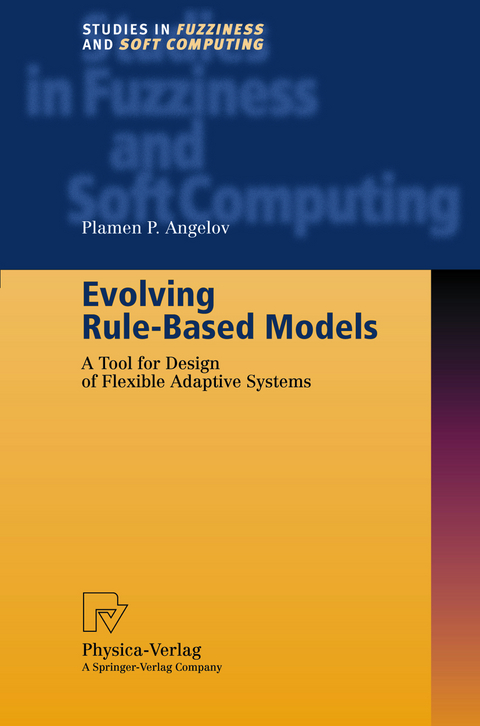
Evolving Rule-Based Models
A Tool for Design of Flexible Adaptive Systems
Seiten
2002
|
2002
Physica (Verlag)
978-3-7908-1457-6 (ISBN)
Physica (Verlag)
978-3-7908-1457-6 (ISBN)
The idea about this book has evolved during the process of its preparation as some of the results have been achieved in parallel with its writing. One reason for this is that in this area of research results are very quickly updated. Another is, possibly, that a strong, unchallenged theoretical basis in this field still does not fully exist. From other hand, the rate of innovation, competition and demand from different branches of industry (from biotech industry to civil and building engineering, from market forecasting to civil aviation, from robotics to emerging e-commerce) is increasingly pressing for more customised solutions based on learning consumers behaviour. A highly interdisciplinary and rapidly innovating field is forming which focus is the design of intelligent, self-adapting systems and machines. It is on the crossroads of control theory, artificial and computational intelligence, different engineering disciplines borrowing heavily from the biology and life sciences. It is often called intelligent control, soft computing or intelligent technology. Some other branches have appeared recently like intelligent agents (which migrated from robotics to different engineering fields), data fusion, knowledge extraction etc., which are inherently related to this field. The core is the attempts to enhance the abilities of the classical control theory in order to have more adequate, flexible, and adaptive models and control algorithms.
1 Introduction.- I System Modelling: Basic Principles.- 2 Conventional Models.- 3 Flexible Models.- II Flexible Models Identification.- 4 Non-linear Approach to (Off-line) Identification of Flexible Models.- 5 Quasi-linear Approach to FRB Models (Off-line) Identification.- 6 Intelligent and Smart Adaptive Systems.- 7 On-line Identification of Flexible TSK-type Models.- III Engineering Applications.- 8 Modelling Indoor Climate Control Systems.- 9 On-line Modelling of Fermentation Processes.- 10 Intelligent Risk Assessment.- 11 Conclusions.- References.
| Erscheint lt. Verlag | 26.2.2002 |
|---|---|
| Reihe/Serie | Studies in Fuzziness and Soft Computing |
| Zusatzinfo | XIII, 214 p. |
| Verlagsort | Heidelberg |
| Sprache | englisch |
| Maße | 155 x 235 mm |
| Gewicht | 460 g |
| Themenwelt | Informatik ► Theorie / Studium ► Künstliche Intelligenz / Robotik |
| Mathematik / Informatik ► Mathematik ► Allgemeines / Lexika | |
| Mathematik / Informatik ► Mathematik ► Logik / Mengenlehre | |
| Schlagworte | algorithms • Complexity • Complex System • Complex Systems • Decision support system • Evolving Rule-Based Models • Flexible Adaptive Systems • fuzzy • Fuzzy-Logik • Fuzzy-Logik / Unscharfe Logik • Genetic algorithms • Hardcover, Softcover / Informatik, EDV/Informatik • HC/Informatik, EDV/Informatik • Intelligent Control • Künstliche Intelligenz • Model • Modeling • Online Model Identification • System |
| ISBN-10 | 3-7908-1457-1 / 3790814571 |
| ISBN-13 | 978-3-7908-1457-6 / 9783790814576 |
| Zustand | Neuware |
| Haben Sie eine Frage zum Produkt? |
Mehr entdecken
aus dem Bereich
aus dem Bereich
Buch | Softcover (2024)
REDLINE (Verlag)
20,00 €
Eine kurze Geschichte der Informationsnetzwerke von der Steinzeit bis …
Buch | Hardcover (2024)
Penguin (Verlag)
28,00 €


